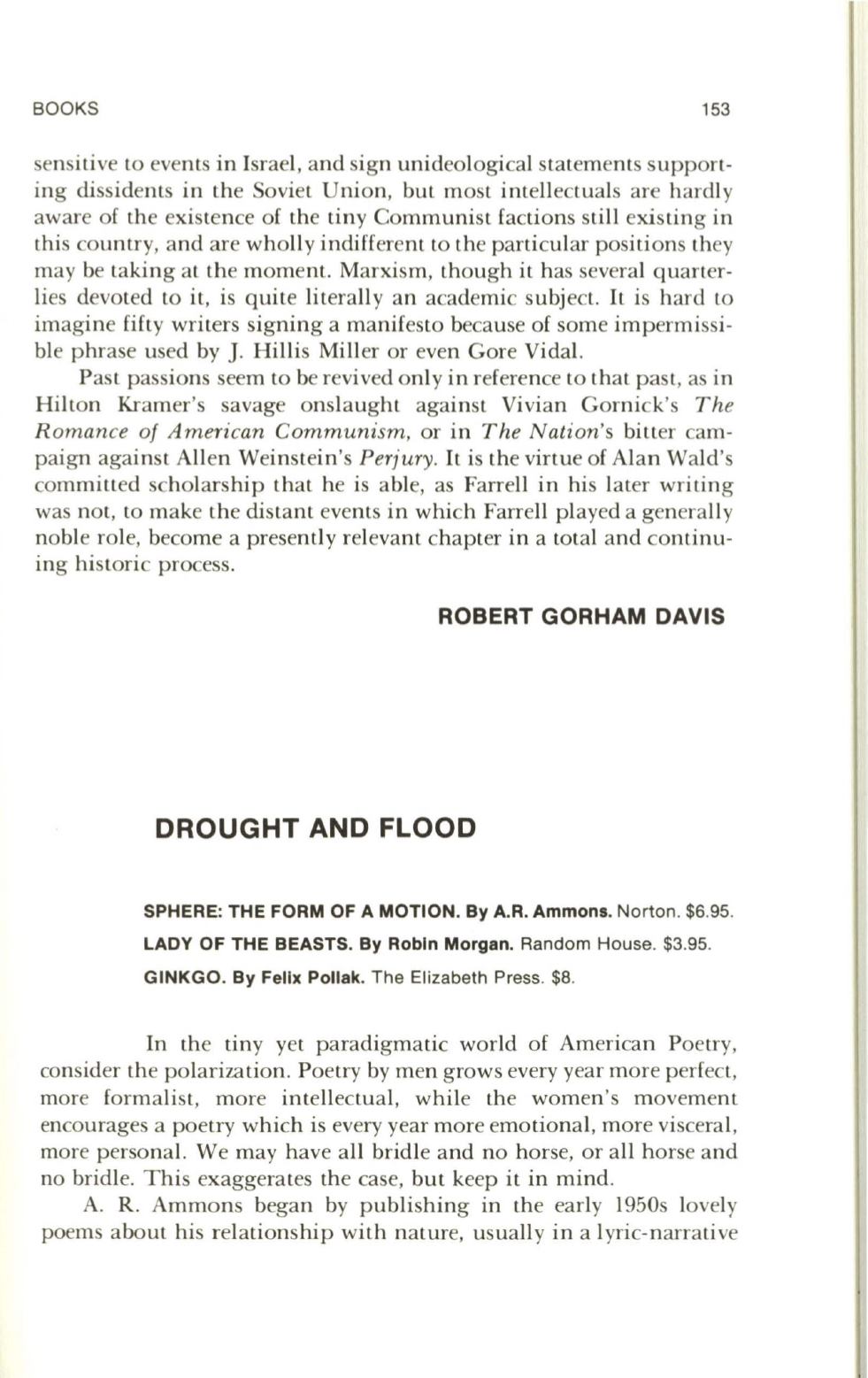
BOOKS
153
sensitive to events in Israel, and sign unideological statements support–
ing dissidents in the Soviet Union, but most intellectuals are hardly
aware of the existence of the tiny Communist factions still existing in
this country, and are wholly indifferent
to
the particular positions they
may be taking at the moment. Marxism, though it has several quarter–
lies devoted
to
it, is quite literally an academic subj ect.
It
is hard to
imagine fifty writers signing a manifesto because of some impermissi–
ble phrase used by
J.
Hillis Miller or even Gore Vidal.
Past passions seem to be revived only in reference to that past, as in
Hilton Kramer's savage onslaught against Vivian Gornick's
The
Romance of American Communism,
or in
The Nation's
bitter cam–
paign against Allen Weinstein's
Perjury.
It
is the virtue of Alan Wald's
committed scholarship that he is able, as Farrell in his later writing
was not, to make the distant events in which Farrell played a generally
noble role, become a presently relevant chapter in a total and continu–
ing historic process.
ROBERT GORHAM DAVIS
DROUGHT AND FLOOD
SPHERE: THE FORM OF A MOTION. By A.R. Ammons.
Norton. $6.95.
LADY OF THE BEASTS. By Robin Morgan.
Random House. $3.95.
GINKGO. By Felix Pollak.
The Elizabeth Press. $8.
In
the tiny yet paradigmatic world of American Poetry,
consider the polarization. Poetry by men grows every year more perfect,
more formalist, more intellectual, while the women's movement
encourages a poetry which is every year more emotional, more visceral,
more personal. We may have all bridle and no horse, or a ll horse and
no bridle. This exaggerates the case, but keep it in mind.
A. R . Ammons began by publishing in the early 1950s lovely
poems about his relationship with nature, usually in a lyric-narrative


